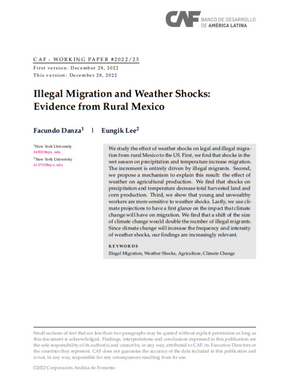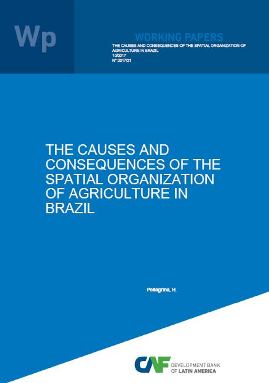The Origins of Structural Transformation
Resumen
The study examines how labor market shocks originating in non-agriculture affect the organization of agricultural production. Using data from Brazil between 1986 and 2017, it shows that the entry of large non-agricultural firms leads to persistent increases in local wages, declines in agricultural employment, and a shift toward more capital-intensive farming. Farms consolidate, the number of small operations declines, and mechanization increases.
To study the magnitude of this reorganization, we develop a general equilibrium model which predicts that a reduction in entry costs in non-agriculture leads to labor reallocation out of agriculture, farm exit, and capital deepening. When we hold mechanization fixed, these adjustments are substantially attenuated, highlighting the role of endogenous technology adoption as an important amplification mechanism.
Materia
País / Región
Fecha
2025-08-29Citar de esta publicación
Item perteneciente a la Colección
Autor
Caunedo, JulietaFelix, Mayara
Manysheva, Kristina
Items Relacionados
Illegal Migration and Weather Shocks: Evidence from Rural Mexico
We study the effect of weather shocks on legal and illegal migration from rural Mexico to the US. First, we find that shocks in the wet season on ...
Women, Motherhood, and Structural Transformation. Insights from Rural Latin America
Structural transformation—the shift from agriculture to industry and services—is key to economic development and can reshape labor market gender gaps. ...
The Causes and Consequences of the Spatial Organization of Agriculture in Brazil
Why are there vast differences in agricultural activity across space? How do these differences shape the aggregate impact of agricultural shocks? To ...





